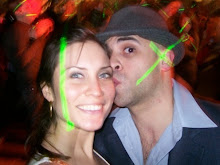Willett, Perry. Electronic Texts: Audiences and Purposes
Willet begins with a concise sketch of the history of humanities computing, from the earliest WW2-era pioneers and "prophets" (although he omits Paul Valéry's statement, quoted in the Unsworth article, which seems to me the most remarkable of all, dating back to 1930) to the development of the field in the 1990s, giving equal space to enthusiastic optimists and disgruntled skeptics. He then addresses the question "what is an electronic text?", covering the various possibilities like faithful, linear transcriptions, facsimile reproductions, hypertexts, and encoded texts, which are generally regarded as providing "the best and fullest representation of text in all its complexity". He praises the volunteer-spirit driving Project Gutenberg's success, but seems to criticize the project's refusal to work with encoding, depicting a kind of bipolar situation where the two camps (those prefering the Gutenberg-like approach and those who firmly believe in standardized encoded texts) regard one another with suspicion. Willet also mentions the practical difficulties in creating electronic texts, which some feel optical character recognition may eventually eliminate. Next, he discusses the various problems surrounding the fruition of electronic texts (their limited availability, the difficulty in finding what IS there, the divide between commercially distributed and locally created ones, often relying on incompatible interfaces, the fact that "markers traditionally used by scholars to determine the merit of any given electronic text are missing", and the consequent reluctance to accept them as scholarly sources). Nevertheless, Willet concludes by stating his firm belief that "the use of e-texts will become recognized as a standard first step in humanities research".
PS After seeing his name pop up again and again, I just had to look up this dude Roberto Busa. He is a jesuit priest from Vicenza, whose lifelong project on completely lemmatizing the work of Thomas Aquinas, began in 1946, and his success in convincing IBM to sponsor his activity, is regarded as inaugurating the age of the digital text. Father Busa, 95 years young, is apparently still active in teaching and has just undertaken a new Aquinas-related linguistics project. It is good to know that all this we're dealing with was pioneered by an Italian... I usually tell my students how after all our contributions to arts and modern thought, we invented experimental science (well not me, Galileo), then we found America and named it (not me, Colombo and Vespucci), then we stepped down and let you guys have your day in the sun (with the necessary mentions of Volta, Marconi, Fermi, etc). Now I can tell them we "invented" digital humanities as well! Jokes aside, I think it is interesting and refreshing to learn that, unlike the computer and the internet, e-texts didn't have their roots in military sciences or in the market-driven "urizenic" machine Cooper and Simpson spoke of, but in Vatican scholarship. I know some will say the Vatican is just as bad, if not worse, than Nike and Exxon, but still...
PPS In response to Kristen's post: I had not heard anything about the Obama blowjob-crack video, but now I have...
Tuesday, February 26, 2008
Subscribe to:
Post Comments (Atom)

No comments:
Post a Comment